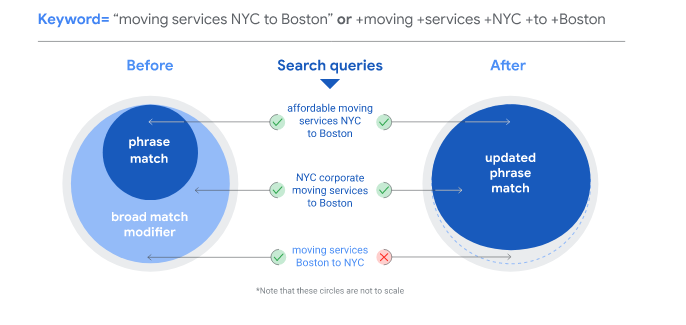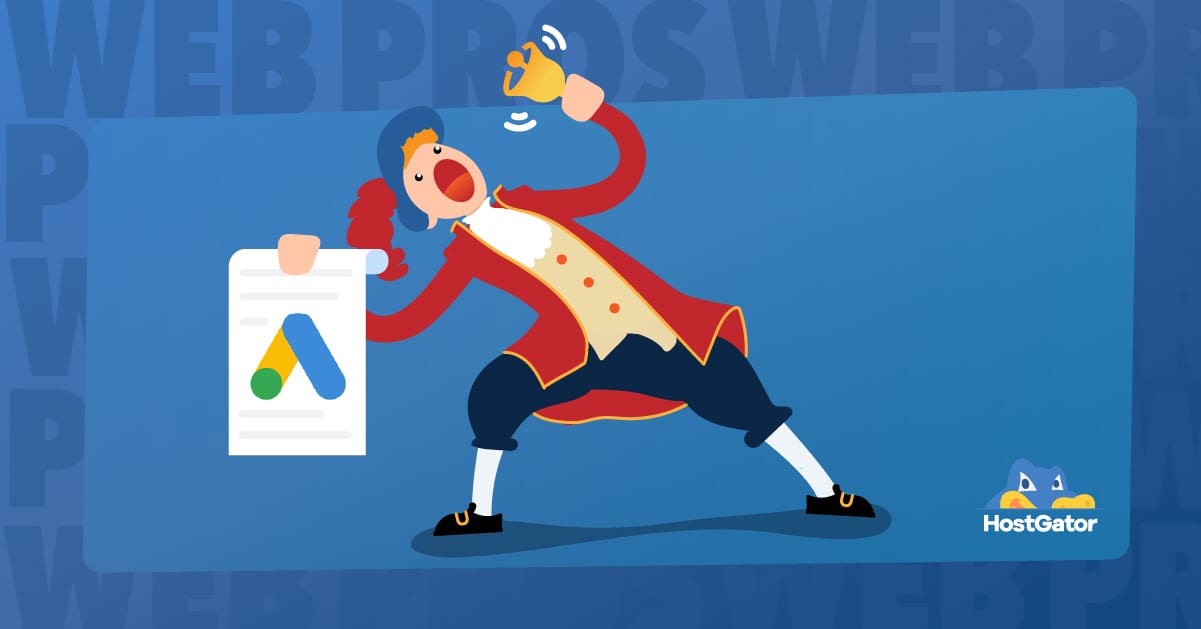This article is part of Virtue Media’s Web Pros Series. In this series, we feature articles from our team of experts here at Virtue Media. Our Product Managers, Linux Administrators, Marketers, and Tech Support engineers share their best tips for getting the most out of your website.
Do you use Google Ads to connect with new customers for your business? If so, you need to know about a change Google’s making to the way they handle keyword matches—changes that can affect who you reach with your ads and how much you spend.
Here’s the news: Starting in July 2021, Google’s broad match modifier (BMM) functionality merges with phrase match.
Scratching your head? Understandable – Google gives you several ways to set up your ad campaign keywords, and it can be a lot to keep track of while you’re running a business.
A quick review of keyword match types in Google Ads
Long story short, when you set up a Google ad campaign, you decide how you want keywords to trigger your ads to display:
- Exact match keywords only show your ad to searchers who type in the same exact phrase or one with the same intent. For example, if your exact match keyword is [dog sweater] your ad will show in searches for sweaters for dogs and dog sweaters, but not dog costumes or dog holiday outfits.
- Phrase match keywords show your ad to searchers who type in the same or a related phrase. For example, if your phrase match keyword is “rabbit backpack” your ad will show in searches for rabbit backpacks and rabbit carriers, plus pet carriers and rabbit supplies.
- Broad match keywords are, well, the broadest. Set up a broad match keyword for wading pool and your ad could show in searches for plastic kiddie pools, public pools and splash pads, and dictionary definitions of the term. Broad match searches are useful for helping your ad appear on searches for your competitors, because they focus on general intent.
OK, so what’s changing with Google Ads keyword matches?
Because broad match is sooo broad, Google added a broad match modifier option a while back. It’s basically halfway between broad match and phrase match.
To make a broad match modified keyword, you put plus signs in front of the terms in your keyword phrase. Then, Google knows you want all of those keywords to show up in searches that match the same broad intent.
For example, right now, Google’s sample BMM search below will display ads when people are looking to move to Boston from New York and when they’re moving the other direction. This is the “Before” side of the graphic below.

In July, Google’s basically making broad match modifier part of the phrase match option you see on your Ads dashboard, instead of having BMM be a separate thing. As the “After” side of their graphic shows, they won’t display ads for this keyword on Boston-to-NYC options, which will ensure that the ads are more relevant.
Also, as of July:
- You won’t be able to create new BMM keywords by using the + sign.
- Phrase match will automatically include BMM functionality.
- Any BMM keywords you have now will roll over to the new version of phrase match.
If you run campaigns in more than one language, you may see this change take effect at different times. Like most Google changes, this one will roll out in phases, with English and a few other widely spoken languages up first, and the rest later in 2021.
What steps should people take to make sure their ad programs are still on track?
Here’s what Google recommends.
1. Start creating phrase match keywords instead of BMM keywords.
They’re going to change soon anyway, and if you edit your BMM keywords they’ll auto-update to phrase match.
2. Don’t convert your existing BMM keywords to phrase match if you want to keep their performance stats.
Changing them now will wipe out that data.
3. Review your program to see if you need to add or change keywords.
What you do here depends on your money and your goals.
Trying to stretch a small ad budget? You’re probably better off sticking with exact match keywords if your ad budget’s very tight, especially now that phrase match will automatically include broader intent. That adjustment can help you reach customers who are intent on buying instead of spending your ad dollars on people who may just be browsing.
Got a bigger ad budget and want to find more customers? You can use broad match, phrase match, and Google Smart Bidding as a discovery tool—as long as you don’t have a low cap on your budget and you can wait two to four weeks for Google’s algorithm to learn how people search for your keywords and what they do next.
4. Take a new look at your negative keywords.
Google says the update won’t affect them, but while you’re updating, it’s a good idea to make your negative matches as exact as you can, so you have everything in there that you don’t want to match to.
For example, if you only sell large t-shirts, you’ll need to list medium and small as negative keywords, so your ads don’t show up in those search results.
Get ready for phrase match
Once you have everything ready, remember to monitor your Google Ads metrics after the change in July. You may need to make more adjustments to reach the right customers with your ad spend.
Ready to start running pay-per-click ads for your business? Virtue Media’s shared hosting plans come with a $150 credit for Google Ads when you spend $25 on ads, and a free $100 credit for Bing Ads.




![Yes, B2B Websites Can Use Personalization Too [Here’s How]](https://mdvirtue.com/wp-content/uploads/2022/02/Yes-B2B-Websites-Can-Use-Personalization-Too-Heres-How-400x250.jpeg)

0 Comments